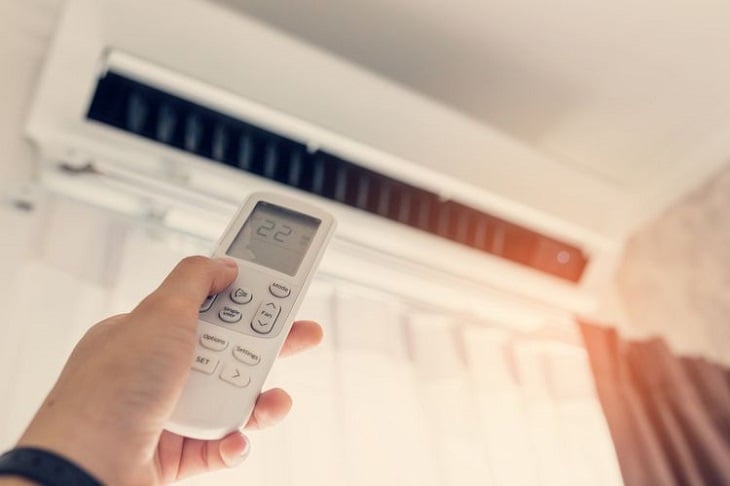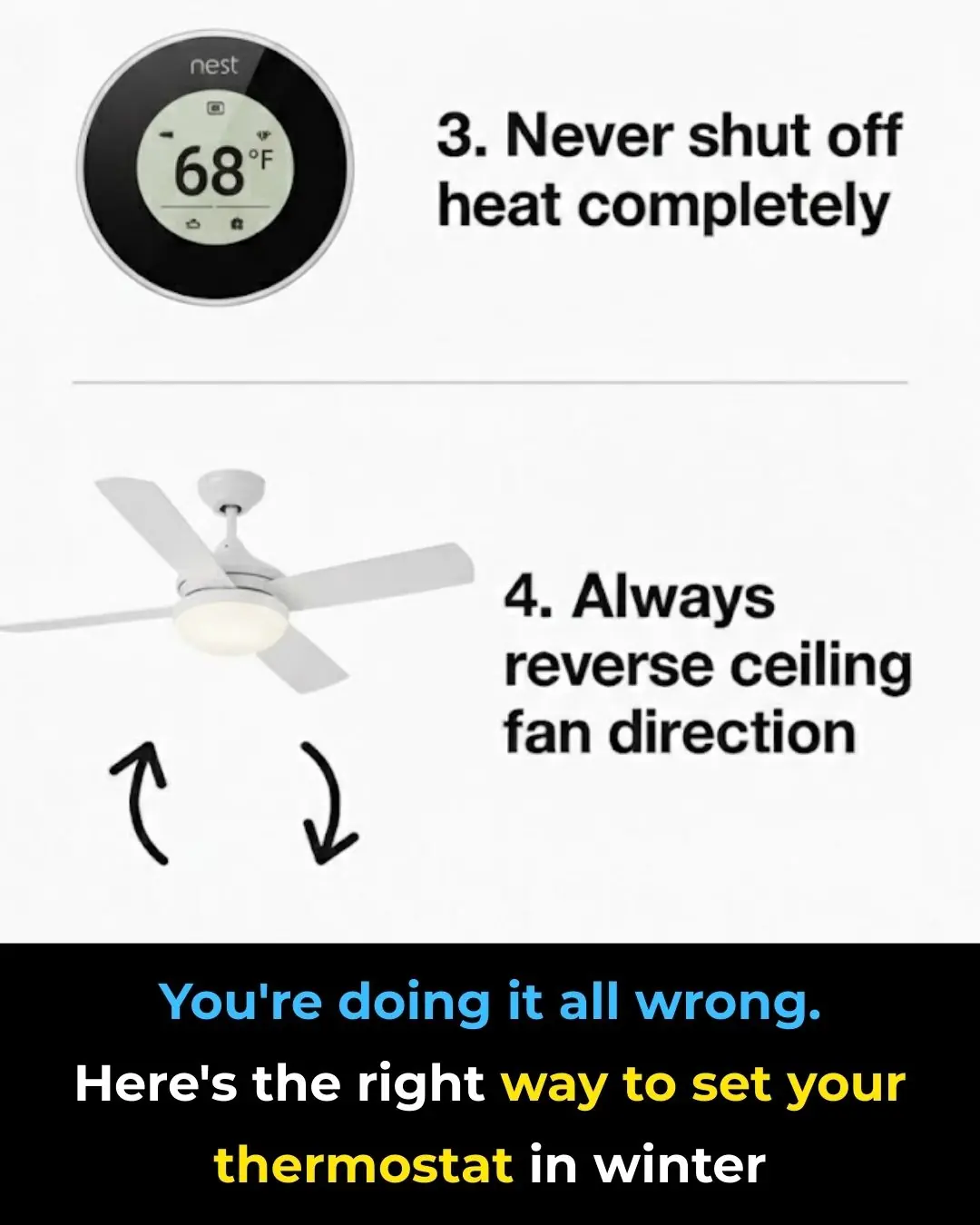
11 ways to save electricity that seem right but are actually completely wrong, making next month's bill higher than the previous month's

11 Common Misconceptions About Saving Electricity That Many Families Make
Saving electricity is an issue that many households care deeply about. However, not everyone knows how to save power effectively. In fact, doing it the wrong way can sometimes have the opposite effect—causing your electricity bill to rise even higher the following month.
Many families try to reduce their monthly expenses by cutting down on electricity use, especially as electricity prices continue to rise. Yet, improper saving methods can not only fail to lower costs but may also damage your household appliances.
Below are 11 common misconceptions about saving electricity that people often make. Let’s take a look and see if you’ve made any of these mistakes!
1. Using “power-saving” devices
You’ve probably seen plenty of advertisements claiming that certain devices can help you save 30–40% of your electricity consumption for appliances like TVs or refrigerators.
However, most of these so-called “energy-saving gadgets” have no verified testing or certification. In fact, using low-quality or counterfeit devices can make your electricity usage even higher—or worse, pose safety risks.
2. Frequently turning the air conditioner on and off
Many people turn off the air conditioner every time they leave the room, even for a short while, or switch it off and on repeatedly when they feel too cold or hot.
This habit can shorten the lifespan of your air conditioner and consume more electricity, since restarting requires a large amount of power. Instead, maintain a steady temperature of 28–29°C (82–84°F) and use a fan to circulate cool air evenly.
3. Unplugging the refrigerator when not in use
Turning off your refrigerator for long periods can cause its internal components to oxidize and deteriorate. Moreover, when turned back on, the fridge will consume a lot of electricity to cool down again from room temperature. It’s more efficient to keep it running consistently.
4. Overloading the refrigerator
Some believe that filling the refrigerator with lots of food helps it cool efficiently. However, this forces the fridge to work harder to keep everything cold, leading to greater electricity use.
5. Leaving devices on standby mode
Many people leave their laptops or TVs in standby mode, thinking it saves energy. In reality, standby devices still consume power—and if your home’s power supply fluctuates, it can even cause short circuits or fires. It’s best to completely turn off and unplug devices when not in use.
6. Turning off lights every time you leave a room
This is a good habit—but only for incandescent bulbs. With fluorescent lights, frequent switching on and off can actually use more power and shorten their lifespan. If you’re stepping out for less than 15 minutes, it’s better to leave them on.
7. Only focusing on saving electricity for air conditioners and refrigerators
It’s true that these two appliances consume the most energy, but other devices such as microwaves, ovens, fish tank lights, and chargers also use considerable power. You should manage electricity consumption for all appliances in your home.
8. Keeping rice cookers on “warm” mode for long periods
Leaving rice cookers in “keep warm” mode for hours consumes unnecessary power and can make the rice dry or spoiled. Depending on the model, maintaining this mode for 10 hours can consume 0.4–1.5 kWh of electricity. It’s better to limit warming time and reheat only when needed.
9. Not cleaning ice buildup in the freezer
A thick layer of ice in your freezer blocks cold air circulation, making the fridge work continuously to maintain the temperature. This wastes electricity and shortens its lifespan. Regularly defrost and clean your fridge to keep it efficient.
10. Using ceiling fans all day to cool the room instead of air conditioning
Ceiling fans do not lower room temperature; they only circulate air to make it feel cooler. Leaving them on all day doesn’t cool your home—it just wastes power. Always turn off fans when you leave the room.
11. Turning off devices but not unplugging them
Many electronic devices—such as chargers, microwaves, TVs, and fans—still draw electricity even when turned off but left plugged in. To truly save power, you should unplug these devices when they’re not being used.
💡 Conclusion
Saving electricity doesn’t just mean cutting usage—it’s about using it wisely and efficiently. Avoiding these common mistakes will help reduce your bills, extend the lifespan of your appliances, and protect your home’s electrical safety.
News in the same category


Put Bay Leaves in the Corners of Their Kitchen

Washing blood stains from bed sheets with hot water or detergent is completely wrong; this method will remove them completely, leaving no trace.

Don't put tomatoes in the refrigerator: Here's how to keep them fresh for a whole week without them spoiling.

Tips for boiling okra to keep it vibrant green, not slimy, and retain all its nutrients.

When frying pork fat, some people add salt, others add water, but chefs use pure white fat that lasts a long time without spoiling.

Easy Tips to Keep Your Bathroom Smelling Fresh All Day

Why Eggplant Is an Affordable Superfood for Heart Health and Weight Management

Why Bamboo Shoots Are a Fiber-Rich Vegetable Worth Cooking the Right Way

Can Herbal Hair Washes Really Reduce Hair Loss and Promote Hair Growth?

Why You Should Avoid Hanging Clothes in These Places During Winter

11 dishes you should never cook in an air fryer; don't try it or you'll regret it.

Put Bay Leaves in the Corners of Their Kitchen

The Simple Nighttime Habit That Can Help You Fall Asleep Faster

Why Some People Rub Onions on Their Windows

You're doing it all wrong. Here’s the right way to set your thermostat in winter

Should You Choose Dark-Colored or Light-Colored Pork?

Tips for growing ginger at home for big, plump tubers that you can enjoy all year round.

Putting these four things in the rice container will not only protect the rice from pests, but also make it taste better.

The secret to cooking fish without a fishy smell: 4 simple spices everyone should try.
News Post

What It Means When a Black Cat Comes Into Your Home

Put Bay Leaves in the Corners of Their Kitchen

Doctors Reveal What Happens When You Eat Okra Regularly

Never Broken a Bone

🌙 If You Notice These 3 Signs at Night, Your Kidneys Are Likely in Great Shape

3 Selfish Habits of Husbands That Increase Their Wives’ Risk of Cervical Cancer – Stop Them Now Before They Harm the Whole Family

Washing blood stains from bed sheets with hot water or detergent is completely wrong; this method will remove them completely, leaving no trace.

Don't put tomatoes in the refrigerator: Here's how to keep them fresh for a whole week without them spoiling.

Bihar Jewellery Shops Restrict Face‑Covered Customers: Security vs. Freedom ⚖️✨

Nalini Unagar’s Viral Post Sparks Debate on Food Delivery Transparency 🍲📱

Tips for boiling okra to keep it vibrant green, not slimy, and retain all its nutrients.

Hrithik Roshan’s Birthday: A Celebration of Grace, Growth, and Mutual Respect 🎂✨❤️

Raghav Chadha Steps Into the Gig Economy: A Call for Labor Rights 🚴♂️📦

Thomas Fuller: The “Virginia Calculator” Who Defied Oppression 🧮✨

A Birthday Surprise That Touched Millions 🎂❤️

When frying pork fat, some people add salt, others add water, but chefs use pure white fat that lasts a long time without spoiling.

Restoring Brain Energy Reverses Advanced Alzheimer’s Pathology in Preclinical Models

Remission Is a Reminder of the Power of Belief

A Scientist Injected Herself With Viruses to Treat Cancer — and It Worked
